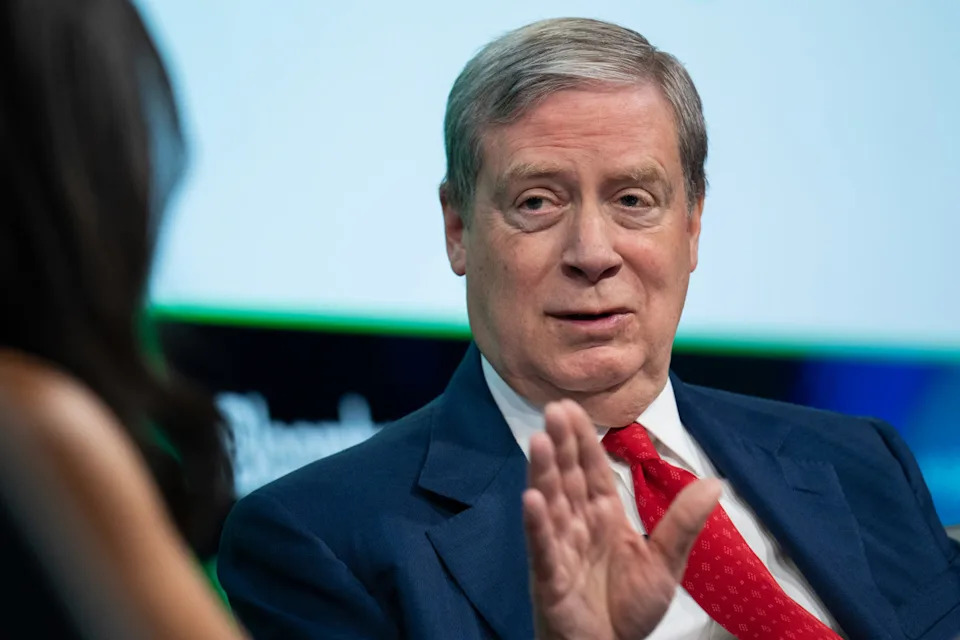Billionaire investor Stanley Druckenmiller doesn’t follow the usual playbook. While many investors share the view not to put all eggs in one basket, he says not necessarily.
"If you really see it, put all your eggs in one basket and watch the basket very carefully," the billionaire has said.
💵💰 Don't miss the move: Subscribe to TheStreet's free daily newsletter 💰💵
Druckenmiller was formerly the investor and philanthropist George Soros's right-hand man. He played a key role in the famous bet against the British pound in 1992, a trade that reports described as having "broken the Bank of England.”
He was the founder and longtime chairman of Duquesne Capital Management, which he ran from 1981 until closing it in 2010. Over its nearly three decades, the firm delivered an average annual return of 30%.
After Druckenmiller closed Duquesne Capital to outside investors, he actively managed his wealth under a family office structure called Duquesne Family Office.
Duquesne Family Office has delivered a consistently strong performance across time frames. The portfolio returned 8.91% over the past year, 106.06% over three years, and 129.61% over five years. Over the past decade, it posted a 275.65% return, according to data from Stockcircle.

'I do not support tariffs exceeding 10%': Druckenmiller
In January, Druckenmiller said President Donald Trump’s return had reignited market enthusiasm and bolstered business optimism. Stock prices, however, fell sharply following Trump’s tariff announcement.
At the time he'd said in a CNBC interview that “the risks [from tariffs] are overblown relative to the rewards. ..."
More recently Druckenmiller spoke out against elevated tariffs, warning that such measures could trigger market instability and economic harm. In an April post on X, he wrote that he did not support "tariffs exceeding 10%."
Related: Iconic fund manager has blunt words on markets after Trump return
In the January remarks he'd said that he would focus on individual stocks, not worrying about the broader market.
The billionaire also said he was bullish on companies in which artificial intelligence would lower costs and drive productivity.
As of March 31 Druckenmiller’s top five holdings were Natera ( NTRA ) , Teva Pharmaceutical ( TEVA ) , Coupang ( CPNG ) , Woodward ( WWD ) , and Philip Morris ( PM ) , a mix of the health care, e-commerce, engineering and tobacco sectors.
Related: Stanley Druckenmiller’s net worth (& how he made Soros $1 billion)
Druckenmiller buys $95 million of Taiwan Semi shares
In the first quarter of 2025 Druckenmiller quintupled (up 456.9%) his stake in Taiwan Semiconductor ( TSM ) from the previous quarter, adding 491,265 shares. That chunk of stock was valued at roughly $95 million as of May 19’s stock price.
Druckenmiller had previously exited the stock in third-quarter 2023, then reopened the position with 57,355 shares in Q3 2024, followed by a purchase of 50,160 shares in Q4.
Related: Cathie Wood buys $2.7M surging China tech stock after tariff talks
Taiwan Semiconductor is the world's leading contract chipmaker and a key supplier to companies like Nvidia ( NVDA ) and Advanced Micro Devices ( AMD ) .
In April, the company reported first-quarter earnings per share increased 60.4% to $2.12 per ADR. Revenue reached $25.53 billion, a 41.6% increase year-over-year.
For the current quarter, TSMC expects revenue of $28.4 billion to $29.2 billion. The midpoint of $28.8 billion topped Wall Street's target of $26.92 billion.
"Moving into second quarter 2025, we expect our business to be supported by strong demand for our industry-leading 3-nanometer and 5-nanometer technologies," TSMC Chief Financial Officer Wendell Huang said.
The bullish bet isn’t without risk. TSMC is exposed to geopolitical tensions and rising trade barriers between the U.S. and China, which could hurt the company's delivery and revenue.
“While we have not seen any changes in our customers’ behavior so far, uncertainties and risks from the potential impact from tariff policies exist,” Huang said in a TSMC news release.
Nvidia's CEO, Jensen Huang, said last September that Nvidia had the ability to turn to alternative suppliers as it had enough intellectual property. But he cautioned that the switch might lower chip quality.
More Nvidia:
“Maybe the process technology is not as great, maybe we won't be able to get the same level of performance or cost, but we will be able to provide the supply," Huang said at Goldman Sachs’s Communacopia + Technology Conference. "And so I think the — in the event anything were to happen, we should be able to pick up and fab it somewhere else.”
“TSMC is the world's best by an incredible margin … the great chemistry, their agility, the fact that they could scale,” he added.
TSMC stock is down 3.44% year-to-date, while the S&P 500 index is up 1.39% over the same period.
Related: Veteran fund manager unveils eye-popping S&P 500 forecast

